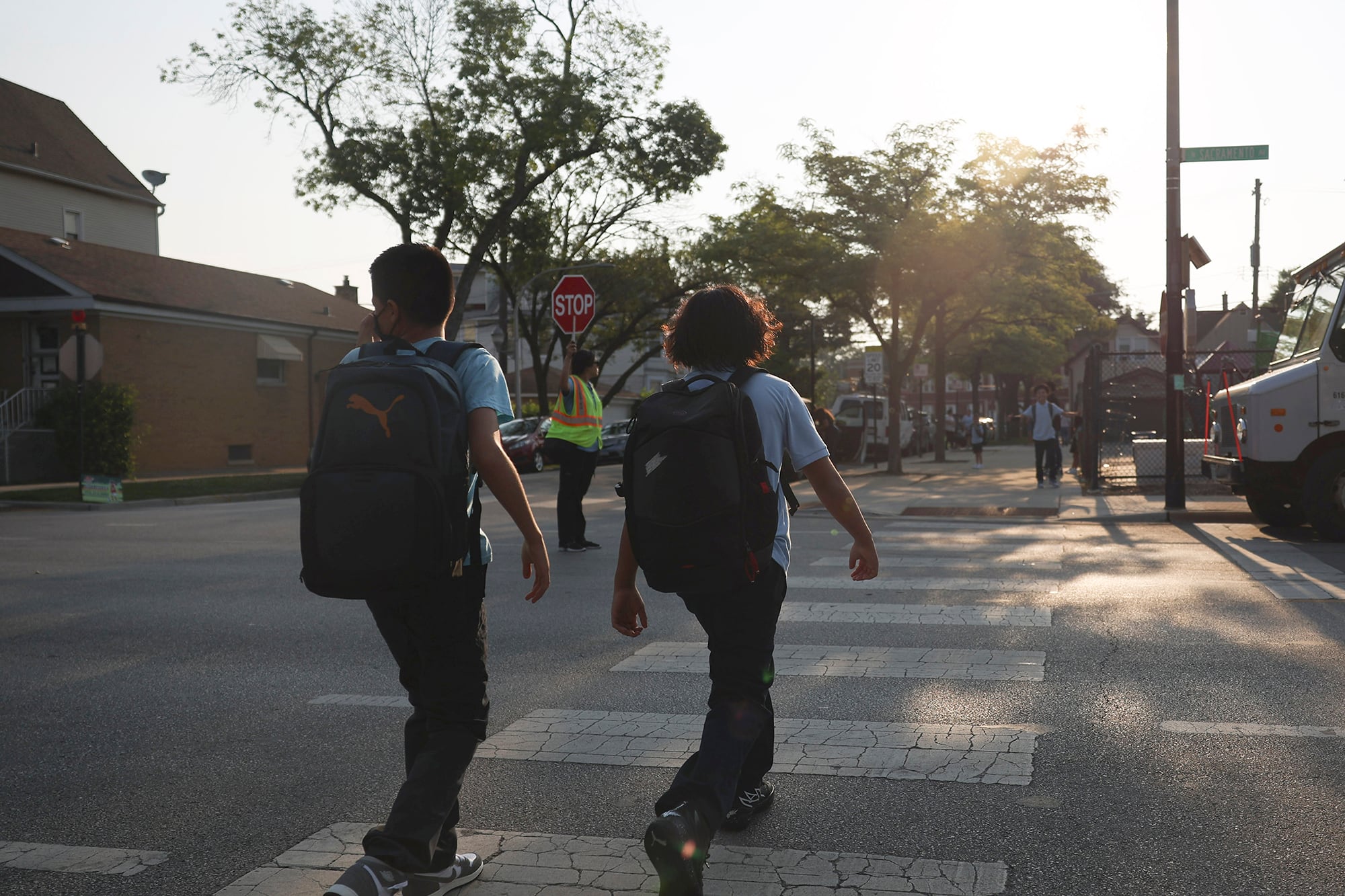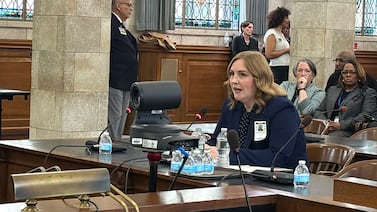Sign up for Chalkbeat Chicago’s free daily newsletter to keep up with the latest news on Chicago Public Schools.
A new law in Illinois prevents law enforcement from ticketing students at school, ending a practice that state education officials and lawmakers say disproportionately impacts students of color.
The law, which Gov. JB Pritzker signed Wednesday, also requires districts to have a “memorandum of understanding” with local law enforcement agencies for schools using school resource officers by July 1, 2026. The agreement must prohibit school resource officers from ticketing students, as well as outline the responsibilities of the resource officer, ensure officers have been trained, and provide review and evaluation of the school resource officer program.
The ban on ticketing and fining students for incidents that happen on school property during the school day takes effect immediately.
The changes build on a law passed 10 years ago that prohibited schools from directly issuing fees and fines as a disciplinary consequence.
The new law also includes data collection requirements for local school districts and the Illinois State Board of Education. Beginning with the 2027-28 school year, school districts will be required to report the number of K-12 students referred to law enforcement and the number of referrals to law enforcement. The State Board of Education will report data collected from school districts across the state by Jan. 31, 2029.
State Superintendent Tony Sanders said in a press release Wednesday that the state board advocated for the law during the General Assembly’s spring legislative session and he is “proud to see this law cross the finish line.”
“Ticketing students for disciplinary offenses has not been shown to improve student behavior or address underlying causes and student needs,” said Sanders. “The practice has disproportionately impacted students of color and harmed low-income families, forcing them to pay exorbitant and unnecessary fines instead of buying groceries and other household needs.”
The law does not prevent schools from contacting local police departments when a crime has occurred on school property or safety threats.
The new law came in response to a 2022 investigation by ProPublica and the Chicago Tribune that found schools in Illinois referred students to local police departments for disciplinary infractions, rather than issue fines themselves. Students were often ticketed for issues such as truancy — or when a student misses about 5% of the school year without a valid excuse. Black and Latino students were more often ticketed or fined by local enforcement, reporting found.
State Rep. La Shawn Ford, who represents neighborhoods on Chicago’s West Side and suburbs and was the House sponsor of the bill, said in a press release that the law is a “responsible measure” to protect students.
“We want to keep young people out of the criminal justice system, not unnecessarily introduce them to it by including law enforcement in school matters that should be handled by teachers and principals,” said Ford. “Excessive penalties can push a student away from the classroom instead of helping them, which is why it’s so important we’re choosing a better path forward today.”
Samantha Smylie is the state education reporter for Chalkbeat Chicago covering school districts across the state, legislation, special education and the state board of education. Contact Samantha at ssmylie@chalkbeat.org.




